Key takeaways:
- Recycling in South Africa is a community effort, emphasizing collective impact and creativity in repurposing waste.
- Challenges include inconsistent recycling infrastructure, lack of awareness about proper practices, and stigma against waste pickers.
- Personal strategies for effective recycling include creating dedicated recycling spaces at home, educating others, and participating in community clean-up events.
- Integration of recycling into daily habits, such as using reusable bags and composting, fosters a proactive approach to waste management.
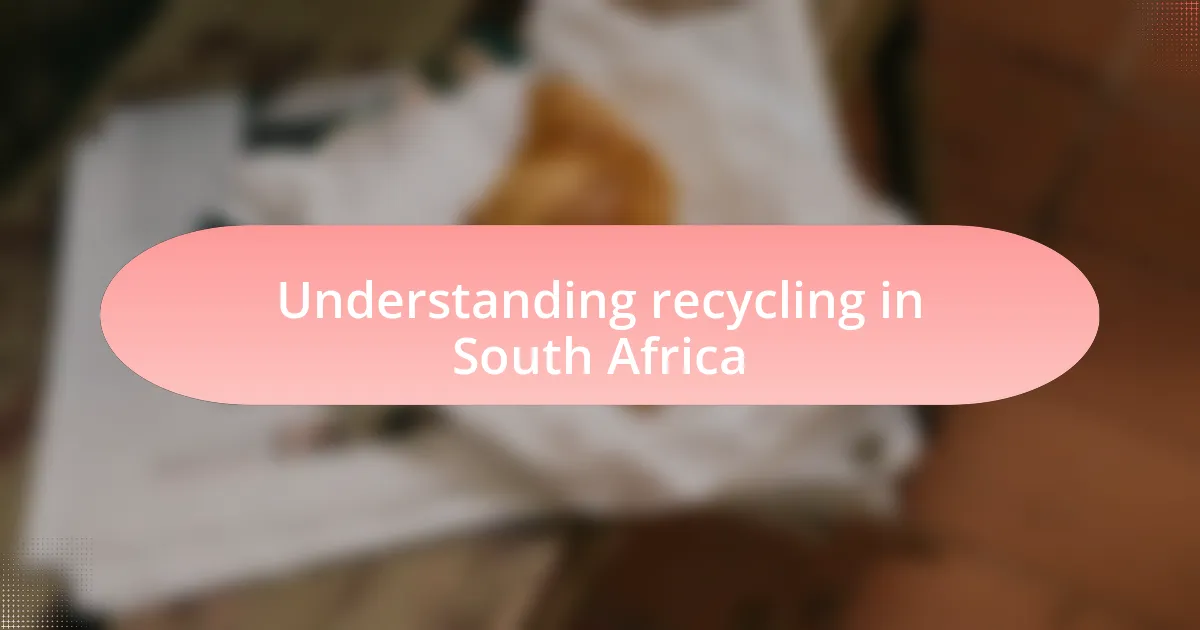
Understanding recycling in South Africa
Recycling in South Africa is not just an environmental need; it’s a community effort. I remember attending a local clean-up day where we gathered not only plastic bottles but also the stories and experiences that came with them. Engaging with others who share the passion for sustainability truly opened my eyes to the collective impact we can achieve.
The statistics on recycling rates in South Africa can be discouraging, but I’ve learned that every small contribution counts. For instance, when I began sorting my recyclables at home, I realized how easy it was to make a difference. It made me wonder—have you ever thought about how simple actions could spark bigger changes in your neighborhood?
Moreover, the cultural attitudes towards recycling vary across communities. During a recent visit to a township, I was impressed by the innovative ways people repurposed waste. It struck me that recycling isn’t merely a chore; it’s an opportunity for creativity and resourcefulness. How can we foster more of this spirit in every corner of our country?
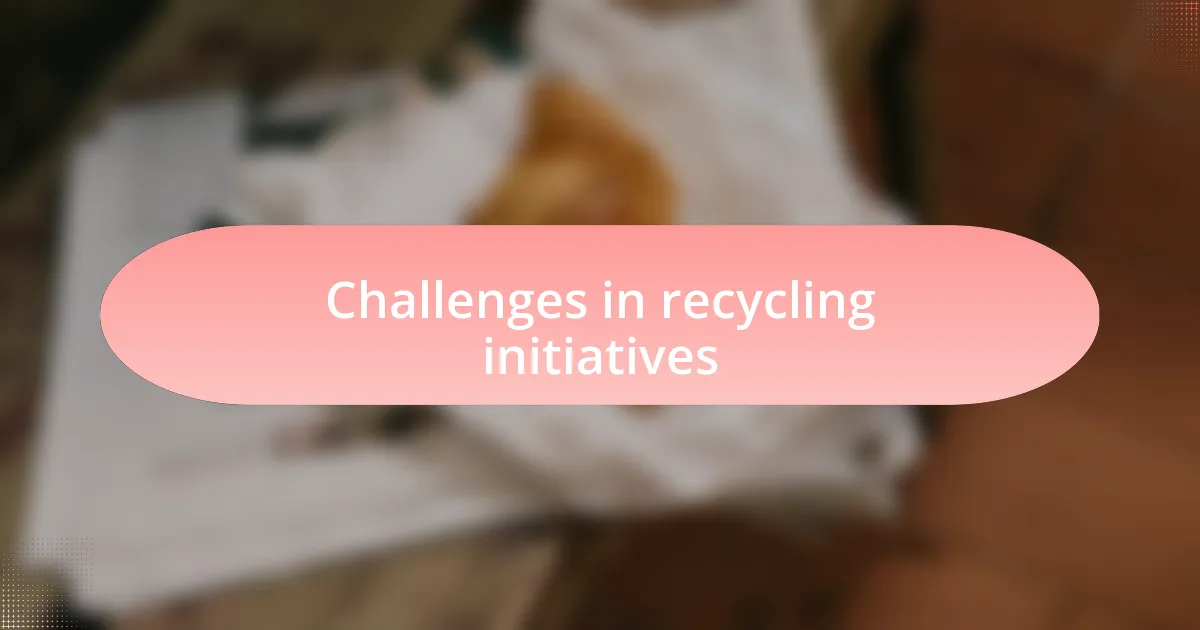
Challenges in recycling initiatives
One major challenge in recycling initiatives in South Africa is the inconsistent infrastructure. I’ve visited several neighborhoods where recycling bins are scarce, leading to confusion about what can and cannot be recycled. How often do we overlook the importance of accessibility in making good habits stick? When the logistics aren’t in place, it’s easy for well-meaning individuals to give up.
Another hurdle is the lack of awareness and education on proper recycling practices. I recall speaking to a friend who thought rinsing out containers before recycling was unnecessary. This misunderstanding, while minor, highlights a larger issue: many people simply don’t know the best ways to support recycling efforts. What if local communities held more workshops on this topic? It could pave the way to a broader understanding.
Moreover, the stigma surrounding waste pickers often complicates the picture. I remember chatting with a waste picker who shared how crucial their role is in the recycling chain, yet they face discrimination. Why should those who contribute positively to our waste management struggle for recognition? By valuing their efforts, we might inspire more collective engagement in recycling initiatives.
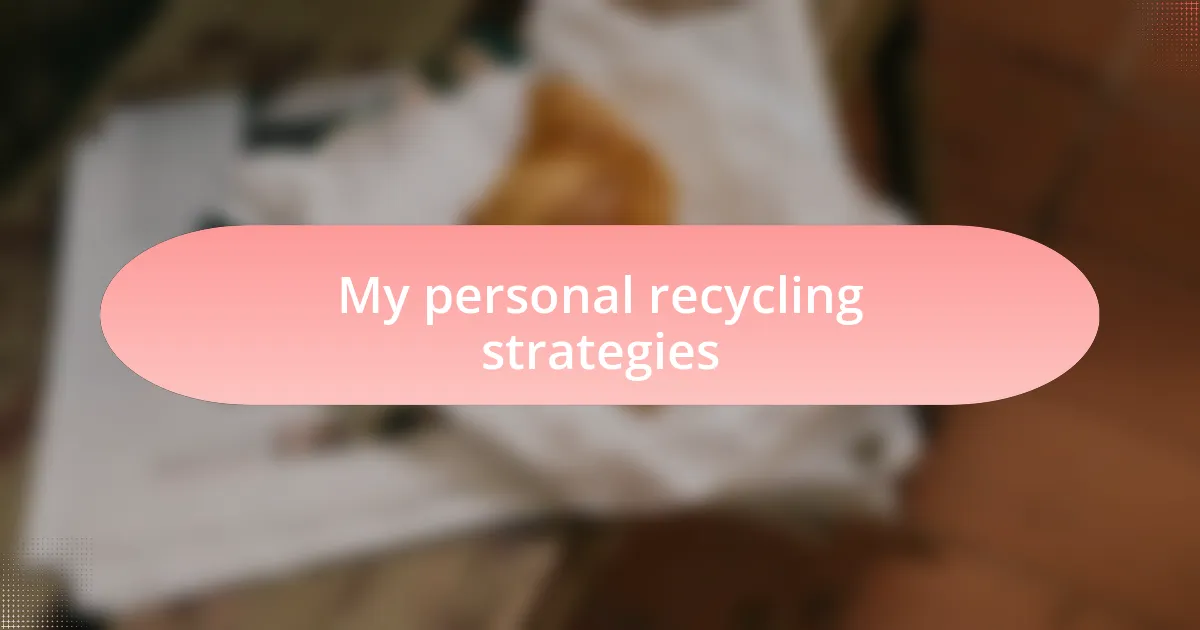
My personal recycling strategies
One strategy that has worked wonders for me is establishing a dedicated recycling zone in my home. I transformed a small corner of my kitchen into a colorful and organized recycling station, complete with separate bins labeled for paper, plastics, and glass. It’s amazing how a simple visual cue can remind us to think twice about waste; I find I recycle much more now that it feels like a part of my daily routine.
I also make it a point to educate my family and friends about the recycling process during our gatherings. A few years ago, I hosted a BBQ where I explained why it’s vital to clean containers before tossing them in the recycling bin. It sparked a lively discussion, and people were genuinely surprised to learn how little efforts could significantly impact our recycling rates. Isn’t it refreshing to see others take an interest in something so important?
Another approach that resonates with me is participating in community clean-up events. The first time I joined one, I was struck by how interconnected we all are in this fight for a cleaner environment. Engaging with like-minded individuals not only strengthens community bonds but also ignites a shared passion for recycling initiatives. What if everyone dedicated just a few hours a month to such activities? The cumulative effect could be transformative.
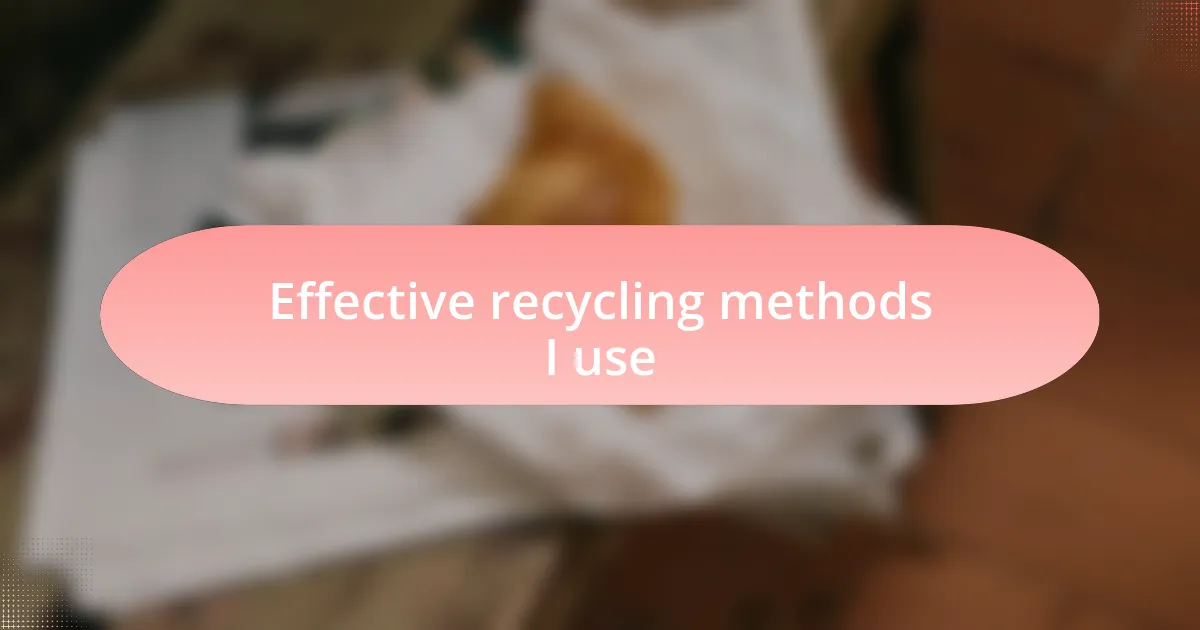
Effective recycling methods I use
I’ve found that integrating recycling into my shopping habits has made a notable difference. For instance, I started keeping a reusable bag in my car, which not only reduces plastic usage but also reminds me to think about packaging choices. It’s a small step, but every time I choose products with less packaging or opt for glass containers, I feel a bit more empowered in my environmental journey.
Another method I actively use is composting. I can’t express how rewarding it is to turn my kitchen scraps into nutrient-rich soil. I remember the first time I dug into my compost pile and found black gold—what a feeling! It’s incredible to witness waste transforming into something beneficial for my garden, reinforcing the idea that waste, when managed properly, can become a resource. Have you ever considered how much waste could be repurposed through simple methods like composting?
Lastly, I’ve started a recycling challenge with my neighbors, where we track how much material we recycle each month. This friendly competition has not only increased our recycling rates but has fostered a sense of camaraderie in our community. Watching everyone share tips and celebrate our successes together reminds me that collaborative efforts can lead to meaningful change. Have you thought about how a little community spirit can inspire greater recycling habits?
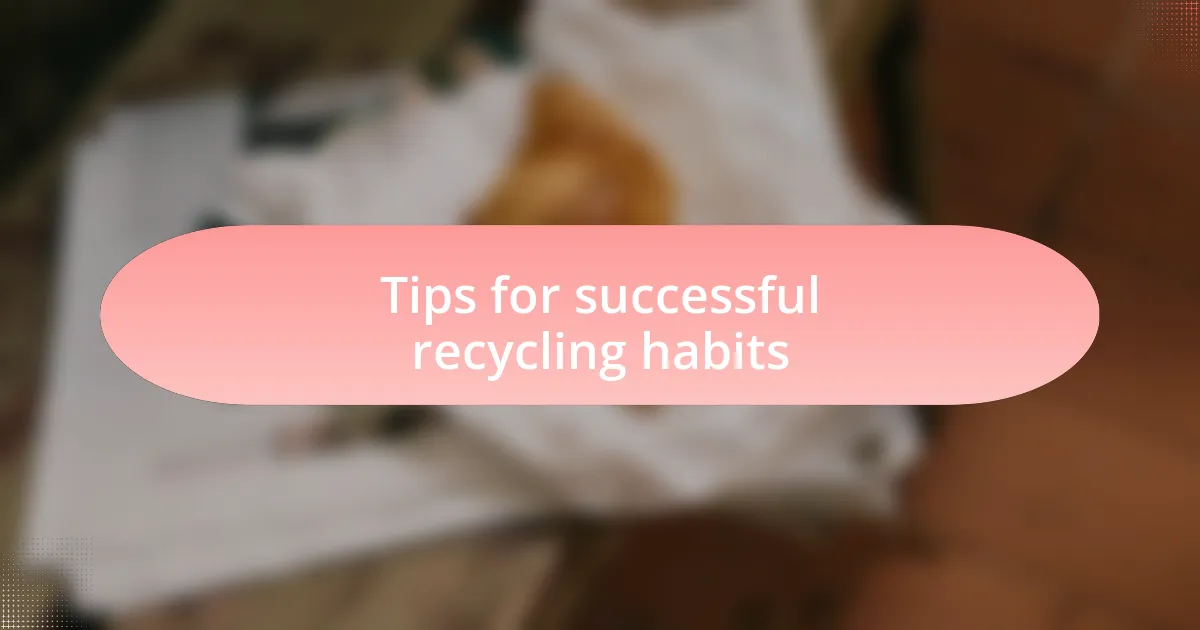
Tips for successful recycling habits
One tip that has served me well is setting up a designated recycling spot at home. I use clear bins labeled for paper, plastics, and metals. Each time I toss something in, it reminds me of the impact my small actions can have. Have you ever noticed how much easier it is to recycle when you have a dedicated space?
Another strategy that really helped me is to keep a recycling checklist on my fridge. This simple tool has worked wonders for me! I’ve noted down items I frequently use that can be recycled, along with a few that often stump people. It’s become a little game to see how many items I can check off each week. Do you find that visuals can make a difference in your habits too?
Finally, I’ve found that educating myself about local recycling programs boosts my commitment. Last year, I attended a community workshop that opened my eyes to what can and can’t be recycled in my area. This knowledge not only reduced contamination in my recycling bin but also made me feel more connected to my environment. Have you had a moment that shifted your perspective on recycling?